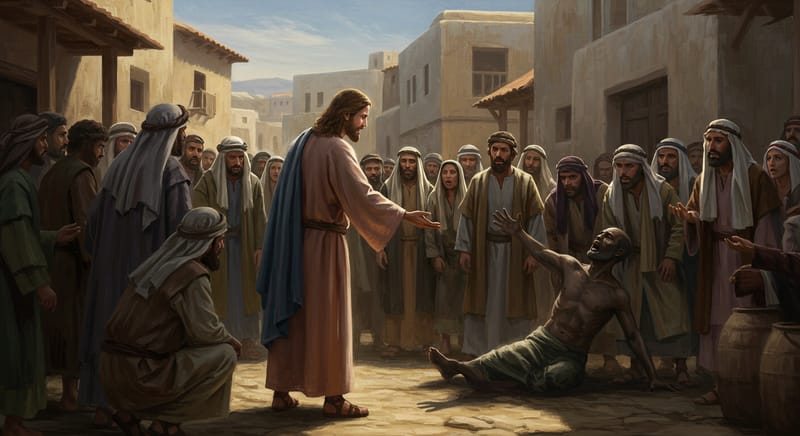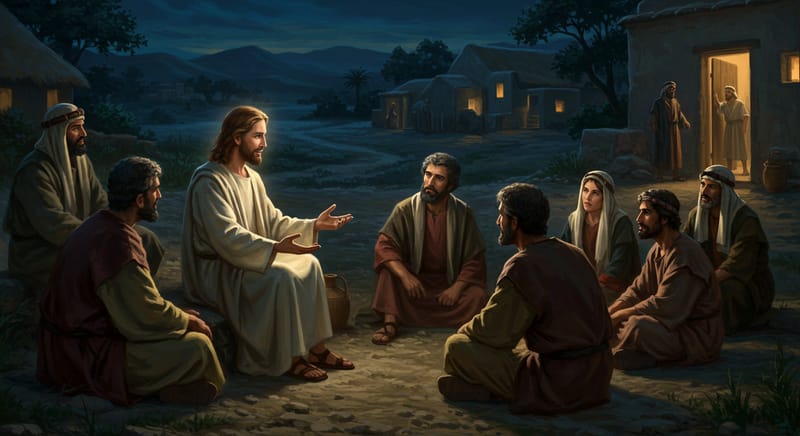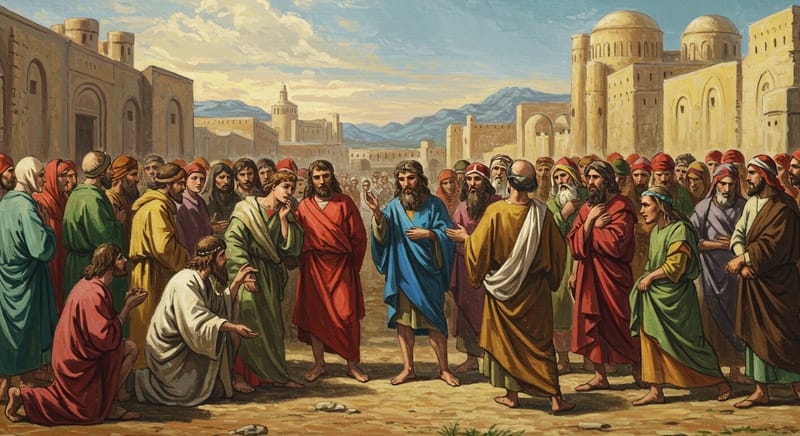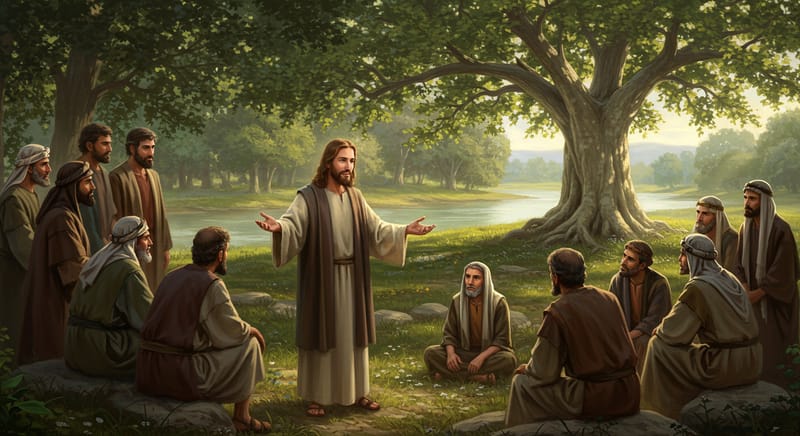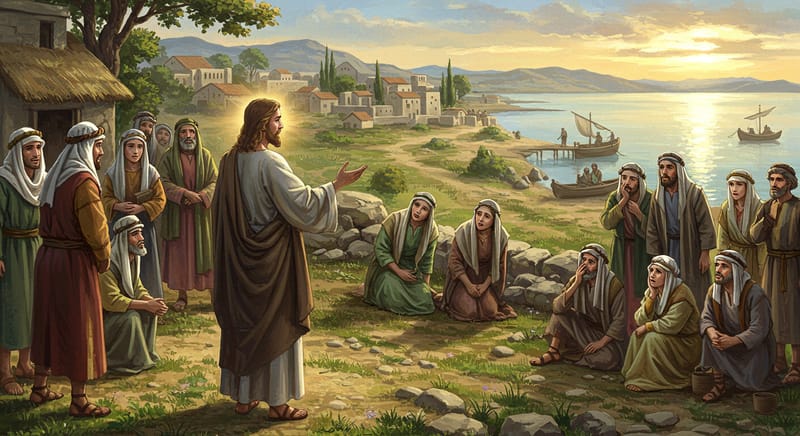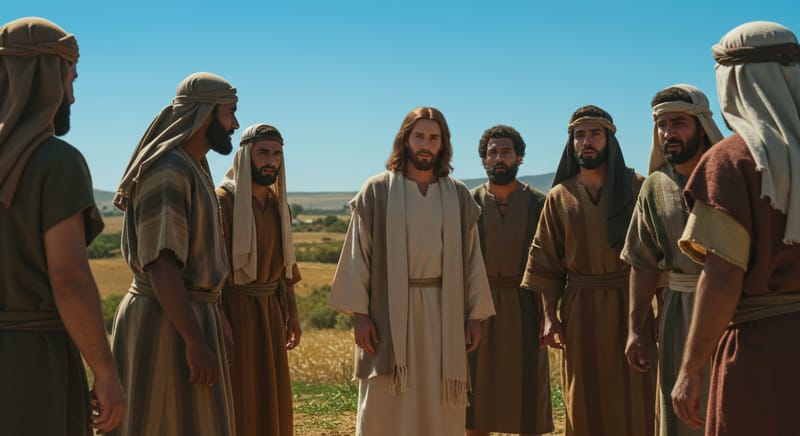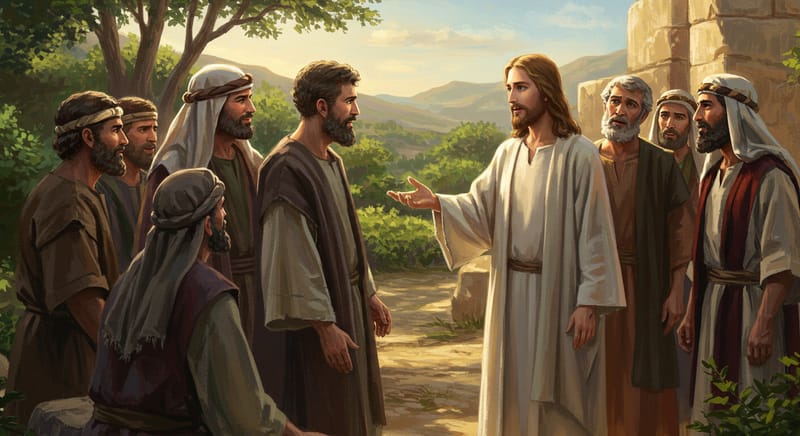DAILY HOMILIES #Jesus
demons are like strong men fully armed, but God is stronger. Do not be deceived into thinking that demons do not exist. It is foolish to deny the power and workings of demons. However, there is no need to fear them when we know that “He that is in us is greater than he that is in the world.” (Cf. 1 John 4:4). To be scared of demons is to behave as one who does not know God. Listen to what Jesus has to say to such persons: “Why are you afraid, O men of little faith?” (Matthew 8:26)
Read MoreNevertheless, when Jesus says we should ask, did He mean we could ask for just anything? What did Jesus consider when he said we should ask, seek and knock? The answer to this question can be seen in the lines that follow: “If you, who are evil, know how to give good gifts to your children, how much more will the heavenly Father give the Holy Spirit to those who ask him!” (Luke 11:13).
Read MoreJonah was not happy that the tree which gave him shade at night would suddenly wither. Little did he know that this was precisely what he wished for the people of Nineveh. Jonah wanted justice served. Jonah failed to realise that justice can also mean offering the sinner a second chance because they still have something good in them. That tree may have committed many atrocities, but to Jonah, the tree was needed to give him shade. Think about this: those we condemn as the worst of sinners still have some good in them.
Read More“When God saw what they did, how they turned from their evil ways, God changed his mind about the calamity that he had said he would bring upon them, and he did not do it.” (Jonah 3:10). Repentance moves God. Just as God changed His mind towards the Ninevites, repentance from sin saves us from the calamities our sins attract.
Read MoreOne of the unique characteristics of the sycamore tree is its enormous roots, which can extend as far as sixty feet around the tree, making it an almost impossible task to uproot. Moreover, Jesus added that you could ask this tree to be planted in the sea, and it would obey you, which is another impossibility, given that a tree of that nature does not grow in the sea. In other words, Jesus is saying that with faith as little as a mustard seed, we can do the impossible.
Read MoreIn today’s Gospel passage, Jesus is unhappy with Bethsaida and Chorazin because, despite the miracles in those towns, the people remained stiff-necked and refused to repent. Jesus was expecting a change of heart and a change of life to follow from the miracles, but the reverse was the case.
Read MoreParents, it is time to rise, take your children and flee from immorality, corruption, insincerity, indecency, drug abuse, and other vices. How do we protect our children? Be a light to them. Lead by example. Stop teaching your children how to tell lies, how to cheat in exams or prostitute themselves. Secondly, spend time with your children. Please do not leave them at the mercy of helpers, domestic staff or others who may harm their spiritual and moral development.
Read MoreWhether we like it or not, we will all experience rejection at some point in our lives, as long as we live in a world where freedom of choice exists. So rather than avoiding rejection at all costs and becoming people pleasers (which is worse), we need to prepare ourselves ahead of time for rejection and find ways to heal ourselves when it occurs.
Read MoreThe power and working of the Angels are a testimony to God’s greatness and the fact that nothing is impossible with him. In today’s Gospel passage, Jesus said to Nathanael, “Before Philip called you, when you were under the fig tree, I saw you.” This statement shocked Nathanael; it revealed to him the power of God, and he was converted instantly. Angels also reveal to us the power of God at work among men. Just as Nathanael couldn’t understand how Jesus was able to see him under the fig tree, we cannot fully understand how the angels work, but we know that they are real.
Read MoreIn our Gospel passage, Jesus speaks to his disciples about his imminent death, followed by betrayal, agony, rejection, and shame. Jesus’ disciples could not understand because they were taken over by fear. It was only after the resurrection that they came to understand what Jesus had been saying. You feel paralysed with fear now because you find it hard to imagine a better tomorrow; you still cannot see any light at the end of your tunnel, but know this: if Jesus rose from the dead, your trials will end one day.
Read MoreCourage is not merely the absence of fear; it is the knowledge that God is alive and He is with you always. Jesus knew that achieving salvation for mankind was not going to happen on a platter of gold, hence He said: “The Son of man MUST SUFFER many things, and be REJECTED by the elders and chief priests and scribes, and be KILLED, and on the third day be RAISED.” (Luke 9:23).
Read MoreWhile we must be concerned about the church as a physical building, we must remember that these words of Haggai also apply to our bodies. This is because we are the temples of the Holy Spirit. St. Paul says: “Do you not know that your body is a temple of the Holy Spirit within you, which you have from God? You are not your own; you were bought with a price. So, glorify God in your body.” (1 Corinthians 6:19-20)
Read More